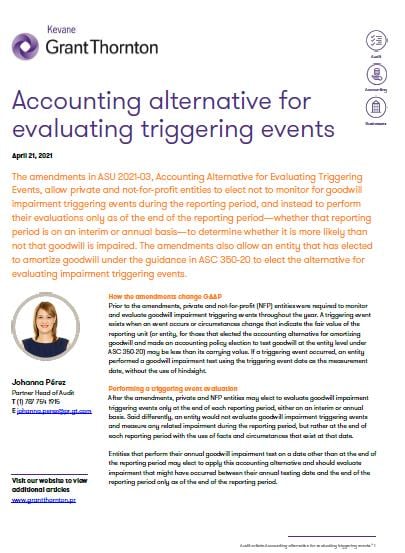-
Financial statements audits
Financial statement audits
-
Compliance audits
Compliance audits
-
Compilations and reviews
Compilations and audit
-
Agreed-upon procedures
Agreed-upon procedures
-
Corporate and business tax
Our trusted teams can prepare corporate tax files and ruling requests, support you with deferrals, accounting procedures and legitimate tax benefits.
-
International tax
Our teams have in-depth knowledge of the relationship between domestic and international tax laws.
-
Tax compliance
Business Tax
-
Global mobility services
Through our global organisation of member firms, we support both companies and individuals, providing insightful solutions to minimise the tax burden for both parties.
-
Sales and use tax and indirect taxes
SUT/ VAT & indirect taxes
-
Tax incentives program
Tax incentives program
-
Transfer Pricing Study
The laws surrounding transfer pricing are becoming ever more complex, as tax affairs of multinational companies are facing scrutiny from media, regulators and the public

-
Business consulting
Our business consulting services can help you improve your operational performance and productivity, adding value throughout your growth life cycle.
-
Business Risk Advisory
Risk is inevitable but manageable. We deliver relevant, timely and practical advices to aid organizations manage risk and improve business performance. We can help you identify, understand and manage potential risks to safeguard your business and comply with regulatory requirements.
-
Technology Advisory
We provide comprehensive solutions to safeguard your business and ensure operational resilience and compliance. Our expert team offers a range of technology advisory services designed to address your cybersecurity needs, enhance business continuity, and manage security effectively.
-
Transactional advisory services
Transactions are significant events in the life of a business – a successful deal that can have a lasting impact on the future shape of the organizations involved. Because the stakes are high for both buyers and sellers, experience, determination and pragmatism are required to bring deals safely through to conclusion.
-
Forensic and investigative services
At Grant Thornton, we have a wealth of knowledge in forensic services and can support you with issues such as dispute resolution, fraud and insurance claims.

How the amendments change GAAP
Prior to the amendments, private and not-for-profit (NFP) entities were required to monitor and evaluate goodwill impairment triggering events throughout the year. A triggering event exists when an event occurs or circumstances change that indicate the fair value of the reporting unit (or entity, for those that elected the accounting alternative for amortizing goodwill and made an accounting policy election to test goodwill at the entity level under ASC 350-20) may be less than its carrying value. If a triggering event occurred, an entity performed a goodwill impairment test using the triggering event date as the measurement date, without the use of hindsight.
Performing a triggering event evaluation
After the amendments, private and NFP entities may elect to evaluate goodwill impairment triggering events only at the end of each reporting period, either on an interim or annual basis. Said differently, an entity would not evaluate goodwill impairment triggering events and measure any related impairment during the reporting period, but rather at the end of each reporting period with the use of facts and circumstances that exist at that date.
Entities that perform their annual goodwill impairment test on a date other than at the end of the reporting period may elect to apply this accounting alternative and should evaluate impairment that might have occurred between their annual testing date and the end of the reporting period only as of the end of the reporting period.
Identifying interim reporting dates
While the FASB chose not to define what constitutes a “reporting date,” in the Basis for Conclusions to ASU 2021-03, the Board observed that many private companies and NFPs provide some level of financial information that indicates compliance with the recognition and measurement principles in U.S. GAAP—for example, financial information provided to lenders, other investors, or regulators—more frequently than annually. The FASB also observed that when entities provide U.S. GAAP-compliant financial information on an interim basis, it would be misleading to allow entities to delay evaluating goodwill for impairment until the end of the annual reporting period. Accordingly, if an entity is required (or elects) to provide financial information in compliance with the recognition and measurement principles of U.S. GAAP on an interim basis, an entity may conclude that it has an interim reporting period.
Private and NFP entities that elect the accounting alternative should carefully evaluate their reporting requirements, including those imposed by debt arrangements, investor agreements, and regulators, to determine whether interim financial information must be reported in compliance with the recognition and measurement principles of U.S. GAAP and whether those reporting requirements create an interim reporting date for purposes of applying the accounting alternative. Additionally, we believe that a private entity or NFP should consider whether financial information reported at an interim date would be affected by goodwill impairment when determining whether its reporting requirements create an interim reporting date. If the financial information would not be impacted by goodwill impairment, the entity may not have an interim reporting date for the purposes of applying the accounting alternative.
Determining whether an entity provides financial information on an interim basis that complies with the recognition and measurement principles of U.S. GAAP, and whether those reporting requirements create an interim reporting date for purposes of applying the accounting alternative, requires judgment, and we encourage entities to consult with their accounting advisers when making this determination.
If a private entity or NFP concludes that it has an interim financial reporting date and elects to apply the accounting alternative, it must perform its goodwill triggering event evaluation as of the end of each interim reporting period in addition to the end of the annual reporting period.
Disclosure
Private and NFP entities are required to disclose their election of the accounting alternative under ASU 2021 03 as a significant accounting policy in the notes to their financial statements.
Guidance not changing under the amendments
If a private or NFP entity elects to apply the accounting alternative in ASU 2021-03, it is still required to:
- assess other assets for impairment, such as long-lived assets and indefinite lived intangibles, under existing guidance—that is, the entity must evaluate triggering events during the reporting period, not only at the reporting date, and test for impairment using the triggering event date as the measurement date.
- upon disposal of a portion of a reporting unit, assess any portion of goodwill retained for impairment as of the disposal date if goodwill is allocated based on the relative fair value between the portions of a reporting unit disposed of and retained.
The amendments do not change the existing guidance on impairment for public entities.
Example
Entity A adopts the accounting alternative in ASU 2021-03 for evaluating goodwill impairment triggering events in March 2021 and has not yet filed its annual financial statements for the year ended Dec. 31, 2020. Entity A only reports on an annual basis.
During the second quarter of 2020, Entity A’s main supplier went out of business, which, absent the adoption of the accounting alternative, would have represented an impairment triggering event in the second quarter. By the fourth quarter, Entity A was able to secure a new supplier with similar terms to the arrangement it had in place with its previous supplier, and cash flows were back in line with its previous forecasts.
Entity A evaluates the facts and circumstances existing as of Dec. 31, 2020 (its annual goodwill impairment triggering event evaluation date under the accounting alternative) and concludes that no triggering event exists as of that date.
Entity A discloses its election to use the accounting alternative as a significant accounting policy in the notes to the financial statements.
Effective date
The amendments are effective on a prospective basis for fiscal years beginning after Dec. 15, 2019. Early adoption is allowed for both interim and annual financial statements that have not been issued or made available for issuance as of March 30, 2021.
Entities should not retroactively adopt the amendments for interim financial statements already issued in the year of adoption.
The amendments also allow for a one-time option to adopt the alternative prospectively after the effective date without assessing preferability under ASC 250, Accounting Changes and Error Corrections.
Source: Grant Thornton, April 13, 2021
